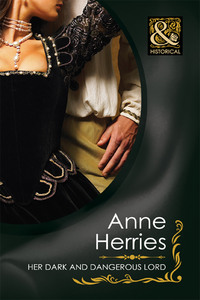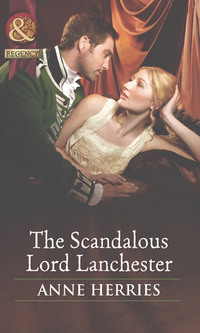
Полная версия
Marianne And The Marquis
‘Oh, no, I do not think—’ Once again Mrs Horne was saved by the arrival of her maid, this time bearing a letter. ‘Yes, Lily, is that for me?’
‘Yes, it is, ma’am,’ Lily said and beamed at her. ‘It has come all the way from Cornwall and the post rider says that he is to return for your reply in the morning—unless you wish to give it now?’
‘That sounds urgent,’ Cynthia said and took the letter. She broke the seal in an agitated manner, because she knew it must be from Lady Edgeworthy, her Aunt Bertha. She scanned the lines swiftly and then closed her eyes for a moment. ‘Oh, dear, it seems that my Aunt Bertha has been ill, Marianne, and she begs that you go to her at once, for she needs a companion.’
‘Marianne is to come to Bath with me,’ Lady Wainwright cried. ‘You must write and tell Lady Edgeworthy that it is impossible—or send one of the other girls.’
Cynthia sat up straight in her chair, because she was caught on the horns of a dilemma, but for once she was not prepared to give in to her sister. ‘I am sorry, Agatha,’ she said. ‘Marianne is Bertha’s godchild and I think, in this instance, I must deny your request. Bertha is elderly and possibly frail. I know that she loves Marianne dearly, and I think she must take precedence this time.’
Lady Wainwright gave her an awful look. It was on the tip of her tongue to say that she would withdraw her favours from the family, but she knew that it was not in her power to deny them the Lodge. Wainwright had been most insistent that he wanted to give them a home of their own, and had even inclined towards letting them stay at the Vicarage. His wife had persuaded him that it would look odd if he did, so he had substituted the Lodge, though he had told his wife that he might look out for a larger establishment for them in time.
‘Well, I suppose if she has been ill…’ Lady Wainwright rose to her feet. ‘I shall have to think about this again, Cynthia. I am not sure whether or not Josephine is ready to go out into society, but I will let you know my decision in a few days.’
Marianne smiled and went to kiss her aunt’s cheek. ‘It was very kind of you to think of me, Aunt,’ she said. ‘But I am sure my great-aunt needs me or she would not have sent all this way and paid for a reply.’
‘No, perhaps not.’ Lady Wainwright nodded. ‘You are a good girl to give up pleasure for yourself in favour of Lady Edgeworthy. I shall consider whether I think Josephine is ready to accompany me to Bath, but I must confess I should have been happier with you.’
Marianne made no answer, but went to the door to see her aunt off. She returned to find the parlour in turmoil. Jo had returned to the room and was venting her frustration at not being able to tell Lady Wainwright what she thought of her invitation, and Mrs Horne was trying to soothe her.
‘You never know, she may decide that you are not good mannered enough to accompany her,’ Marianne said with a sparkle in her eyes. She dodged the cushion Jo threw at her. ‘Well, you do not exactly put on your best manner when she is near, Jo—do you?’
‘Perhaps not,’ her sister said, her cheeks pink. ‘But she is so—so smug!’
‘Yes, she is,’ Marianne agreed. ‘And some of the things she says to Mama make me want to strike her, but we must be careful. Politeness keeps us from saying too much—and her husband has done a great deal to help us these past months.’
‘Indeed he has,’ Mrs Horne said. ‘I do not know how we should have managed without him. Besides, you will meet others like your aunt in company, Jo. You have to learn to bite your tongue, my dear. It will not do to be churlish or ill mannered, for you would soon find yourself unwelcome.’
‘I know,’ Jo said and looked slightly ashamed. ‘But she does try my patience so. If she asks me to accompany her to Bath, I need not go—please say I may refuse her, Mama.’
‘I cannot compel you to go,’ Mrs Horne said and looked distressed. ‘But it will make things so difficult, Jo, my dear. You know your aunt as well as I—and, besides, it might be a good thing for you. She is sure to buy you some new clothes, and you may meet someone nice.’
‘I am not sure that I wish to marry,’ Jo reminded her. ‘It is a pity that I am not Aunt Bertha’s godchild—I would willingly exchange places with Marianne.’
‘You might enjoy yourself in Bath,’ Marianne reasoned. ‘You are always saying that there are never enough books in the library in Mallham, Jo. I dare say there will be many more in Bath, for it is a fashionable spa.’
Mallham was the small neighbouring village, and their nearest town was Huntingdon, a drive of some fifteen miles. While the Reverend Horne had lived, they had managed to visit the town every few weeks to purchase or borrow books, but now, without the carriage that they could no longer afford, it was impossible.
‘Yes, I suppose there is that,’ Jo agreed, looking thoughtful. ‘And there may be some literary circles I might join for the time we are there.’
‘There is also the matter of Lucy’s future,’ Mrs Horne said. ‘I know she is young yet, but she will wish to marry one day, and I shall never be in a position to give her a Season in town. Your godmother may do something for you, Marianne, and Jo may find a husband in Bath…if she wishes—but what of Lucy?’
The sisters turned to look at Lucy. She was sitting by the window, looking out, her head full of dreams, hardly aware of the discussion going on behind her, but she turned to look at them and smiled.
‘Did someone speak my name? I was dreaming again…of a knight on a white horse who came and rescued me from the castle of the wicked witch. He took me to his home in a land where the sun always shines, and then I sent for all of you to come and live with me. And we were all happy ever after.’
‘Oh, Lucy,’ Mrs Horne said and shook her head, smiling because, though she tried very hard not to favour her, Lucy was her baby and her darling. ‘You read too many fairy stories, my love. I fear that you will be disappointed one day when you discover that the knights you dream of are only fables.’
‘Oh, I know that,’ Lucy replied, uncurling from her seat in the window and coming towards them. She was perhaps potentially prettier than either of her sisters with hair that floated like white gold about her face and made her look like one of the princesses she dreamed of, her eyes a deep-sea blue that seemed as mysterious as the ocean. ‘I just like to dream because everything is so awful. I did hear what my aunt said, but neither Marianne or Jo want to go with her. Do they have to, Mama?’
‘I am not certain that I shall refuse after all,’ Jo said and put an affectionate arm about Lucy’s waist. ‘It will be an experience, and an author must experience life to write about it…’ She waited expectantly for their questions.
‘Jo?’ her mother asked anxiously. ‘Just what are you up to?’
‘I have decided to write a book,’ Jo said and laughed as her mother looked shocked. ‘It is not so very wicked, Mama. Other ladies do it and I think I should like to try, though of course I cannot afford to have it published, and I do not imagine a publisher would pay me. However, for my own pleasure and that of my sisters, I shall write my story.’
‘How exciting,’ Lucy said. ‘Will it have knights and princesses in towers, Jo?’
‘No, I don’t think so,’ she said. ‘It will be a love story, Lucy, though it may not end as your fairy stories do with everyone living happily ever after.’
‘I shall look forward to hearing you read little bits of it,’ Marianne said, ‘though we may have to wait for a while, because I think I should go down to Aunt Bertha almost immediately, do you not, Mama?’
‘Oh yes,’ her mother said and clapped her hand to her mouth. ‘Do you suppose that poor boy is still waiting for my answer?’
‘I asked him to return in the morning when I went to the door with my aunt, Mama. I knew you would wish to consider your reply. He will be here at seven of the clock tomorrow so that your letter may catch the mail coach at half-past seven.’
‘How thoughtful you are, dearest,’ her mother said, giving her a look of approval. ‘I hope that you did not mind giving up the visit to Bath in favour of your godmother?’
‘You must know that I did not,’ Marianne said. ‘It is always a pleasure to see Aunt Bertha, and I could not do otherwise when she wrote and asked for me especially. I expect she feels lonely, though I know she has a companion.’
‘I thought you would feel as you ought,’ her mother said with a smile. ‘We must go through your clothes, Marianne. Fortunately, you had a new evening dress last year, which you have hardly worn, but we must see if we can manage something further—I would not have you go there in rags.’
‘I am not yet reduced to that,’ Marianne said and laughed. ‘Indeed, several of my gowns will be perfectly suitable with a little refurbishment.’
‘You must have at least one new gown,’ her mother said with a fond smile. ‘I had been saving my shillings for your birthdays, but I think Marianne’s gown should come first—do you all agree?’
‘Yes, of course,’ Jo said. ‘Aunt Wainwright will not have me shame her so she is bound to have some dresses made for me. You don’t mind, do you, Lucy?’
‘Of course not,’ Lucy said, though her birthday was in a few weeks’ time. ‘Marianne must have some new clothes.’
‘We shall go into Huntingdon and buy them,’ Mrs Horne said. ‘There is no time to waste, Marianne. We shall take the mail coach in the morning—all of us. It will be a treat and we surely deserve it after these past few months.’
The girls looked at each other in delight. Jo thought of the books she might subscribe from the library, Lucy thought of the adventure it would be to ride in the mail coach, and Marianne was wondering how much ribbon and trifles she could buy with five shillings, which was all the money she possessed in the world.
However, Mama had been hoarding her shillings for some time and she actually had ten pounds in her purse when they descended from the coach the following day.
There was but one shop in the small town that sold gowns already made up, and they set off immediately, because Jo wanted to help her sister choose her new clothes before visiting the library.
In the event, Mrs Herrington had three gowns in stock that would fit Marianne: a pale blue silk with a high waist and little puff sleeves that would do for an evening party, a dark blue walking gown and a yellow afternoon dress. All three looked well on Marianne, needing only a few tucks here and there, which she could easily do herself. After some deliberation she decided that she would need the evening gown the most, but the seamstress saw their difficulty and told Mrs Horne that she could make a good price for all three.
‘Oh, no, Mama, that would be much too expensive. I can easily refurbish some of my others with new ribbons and some silk flowers,’ Marianne protested.
‘How much for the three?’ Mrs Horne asked bravely. She kept her smile in place when she was told that the evening gown was five guineas, but twelve would buy all three gowns.
‘Oh, dear, I am afraid that is beyond me,’ Mrs Horne said and frowned. ‘It is very reasonable, madam, but too much for me. We shall take the evening gown, but must say no to the others.’
The seamstress looked disappointed. ‘They were made for a customer who did not pay her bills,’ the seamstress replied. ‘I am letting them go at cost to recover some of my money.’
‘I wish we might take all three,’ Mrs Horne said. ‘But it cannot be done. If you would be kind enough to have it delivered to the posting inn, madam. We have some more shopping to do.’ She smiled at Marianne. ‘You will need slippers, too, my love—and a bonnet if we can manage it.’
‘It is a beautiful dress, Mama,’ Marianne said as they left the shop afterwards. ‘But expensive.’
‘I should have liked to purchase all three,’ Mrs Horne said. ‘But we shall buy some material from the market and you and Jo can make at least one afternoon dress before you leave if you each do some of the sewing.’
‘I’ll help, too,’ Lucy said and then laughed, for she was not yet as clever a seamstress as her sisters, being inclined to fall into a dream over her work.
‘Yes, you can help, dearest,’ Marianne said and smiled at her. ‘Besides, I have several dresses that can be refurbished with new sashes and some fresh lace.’
‘I have some lace put by,’ her mama said. ‘Yes, I dare say it will be enough, Marianne—and who knows, your aunt might give you something.’
‘You do not mean Aunt Wainwright?’ Marianne frowned. ‘I had rather not, Mama.’
‘I meant my aunt Bertha,’ Mrs Horne said and smiled. ‘Now, let us see what else we can buy…’
Two pairs of slippers and a pair of boots were bought next, but the bonnets proved too expensive. Marianne purchased some ribbons to refurbish her old ones, and a bunch of silk flowers. Both she and Jo were good at making and trimming their hats, and it was something they enjoyed doing together.
Jo had slipped away to the library while they were purchasing some small items from Mama’s remaining shillings, and returned with an armful of books for herself and Lucy. Her young sister was delighted with the illustrated copy of fables and thanked her sister with a hug and a kiss.
After partaking of some bread and honey and tea at the inn, they collected their parcels and climbed wearily into the coach heading home.
‘Well, that was a splendid day,’ Mrs Horne said. ‘I shall save my money again for some months and then we may do it again—perhaps for Lucy next time, because I am sure that Agatha will give you a generous sum to purchase your clothes, Jo. She would not allow you to appear with her in Bath looking dowdy.’
‘Yes, I dare say,’ Jo replied. She already had her nose in a book and was lost in a world of her own.
Mrs Horne gave her a rueful look. Jo was the least easy to manage of her daughters and she dreaded to think what might happen if she accompanied her aunt to Bath.
When they arrived back at the Vicarage, it was to discover that a letter had come from Lord Wainwright. In it, he said that he would be sending Marianne to Cornwall in one of his own carriages. She might therefore seek a refund on the public coach ticket that her godmother had purchased for her, and he had sent a small purse of gold sovereigns, which, once opened and counted, amounted to twenty pounds.
‘Oh, Mama,’ Marianne said in awe. ‘It is far too much. We must send it back. I could not take all that from my uncle.’
‘Nonsense,’ Mrs Horne said and smiled. ‘It is good of him, to be sure, and I did not expect it—but he would be offended if we returned it. You must write him a letter, my dear, and thank him for his kindness.’
‘I am very willing to do so,’ Marianne said, ‘if you think we may accept such generosity?’
‘Yes, of course. You will need some money in your purse and I was wondering whether I might sell my pearls…but now I can give them to you to wear, for you have nothing but your silver locket.’
‘Oh, Mama…’ Marianne glowed. ‘I shall keep them safe and give them back to you when I return. And I want you to take the ten pounds you spent for my clothes today, if you please. Ten pounds is more than enough for me.’
‘I shall take five, if you wish,’ Mrs Horne said. ‘Perhaps Lucy and I will have a day in Huntingdon when you two are away.’
‘Please take the ten pounds,’ Marianne said. ‘I felt very guilty to be spending all your money, Mama. You may need it and I shall be quite content with what I have.’
‘Had we known he intended to give you something we might have purchased all three of those pretty gowns, my love,’ Mrs Horne said, looking regretful.
‘I am very pleased with the material we bought, and that roll of blue velvet from the market was so cheap that there is enough for both Jo and Lucy to have something as well.’
‘You have such a generous nature,’ Mrs Horne said. ‘Your papa told me so often that you would make all our fortunes, because you were bound to marry well. He was sure that one day you would meet a young aristocrat at your uncle’s house—or a guest of the Marquis of Marlbeck…’
‘I have never met anyone I liked particularly at one of Aunt Wainwright’s dinners,’ Marianne said. ‘All her friends seem so proud and disagreeable, Mama. And you know that we were never invited to dine at Marlbeck, though of course we went to the open day in the garden as all the marquis’s neighbours did.’
‘Well, he has died, poor man,’ Mrs Horne said and sighed. ‘As yet no one has met his heir. I have heard that he spends most of his time in London, but I do not know how true that may be.’
‘Even if he lived here, it would change nothing,’ Marianne said and smiled at her mother. ‘He is probably very proud—like his uncle—and I am sure he would not wish to marry the daughter of a parson, even one as beautiful as Lucy.’
‘Well, it does not matter,’ her mother said. ‘All I want is for you to be happy, dearest. If it pleases you to marry a good man with no fortune, I shall not blame you.’
‘Oh, Mama,’ Marianne said, smiling at her through eyes misted with tears. ‘We were all so fortunate to have dearest Papa. I am sure that none of us would consider marrying a man who did not match up to him.’
Alone in her room later that night, Marianne sat at the window and looked out at the night sky. The garden was in shadow—the moon had gone behind clouds and there were no stars to be seen. She had opened her window wide, because it was a warm night and she did not feel like sleeping. Her thoughts were busy with the visit to her great-aunt and her hopes for the future. Marriage had been a distant possibility until recently, because she had known that the lack of a dowry might hamper her chances, even if friends and family universally acclaimed her as a beauty. Her father’s curate, Thomas Rowan, liked her very much, possibly enough to ask her to marry him, but he could not afford to take a wife just yet and Marianne was not certain of her answer if he did ask her.
However, she was relieved that she had been spared the visit to Bath with Lady Wainwright, for she would not have cared to be paraded on the marriage mart. Her only true experience of high society had been met with in her aunt’s house, and it had led her to have a dislike of aristocrats. She much preferred the company of ordinary, good-natured folk like her papa and the neighbours she was accustomed to meeting.
She was not surprised when she heard a knock at her door and then Jo came in, dressed in a white nightgown with pink embroidery about the high neck. She smiled when she saw that Marianne was not in bed, perching on the side of it and tucking her feet underneath her.
‘I saw that you had not blown out your candle,’ she said. ‘I could not sleep for thinking of Lady Wainwright. If she does ask I must go, if only for Lucy’s sake. I am sure I shall not meet anyone who wishes to marry me—and I shall not care for that—but if I do not show willing, Lucy may never get her chance.’ Both sisters were extremely fond of their young sibling and thought her perfect in every way.
‘If Aunt Bertha had kept her house open in London, she might have invited us all there,’ Marianne said with a little frown. ‘I know Mama visited London with her once, and had hopes that we might be invited again. I do not mind for myself, Jo, because I would as soon not marry a man of high birth—but Lucy ought to have her chance.’
‘You are the beauty,’ Jo said and looked at her elder sister fondly. ‘Lucy may match you in a year or two—but I am cursed with this!’ She scrunched up her red hair, which curled into ringlets naturally and was the bane of her life. ‘But I know you do not wish for a grand marriage. Perhaps you will meet a pleasant gentleman…someone like Papa…’
‘Yes, that would be the most fortunate thing,’ Marianne said and smiled at her, in perfect agreement. ‘But I am not sure that another such could be found…’
Jo nodded—their father had been the best of men and they both still mourned him sincerely. ‘Well, I suppose it would be unfair to compare other men to his image,’ she said. ‘But it would suit you to be married to a clergyman, I think.’
‘Yes, perhaps,’ Marianne agreed. ‘Though I should like to be loved and to love…’
‘Romantic love.’ Jo laughed a little scornfully. ‘I think Mama and Papa cared for each other, but I am not sure that I believe in true love the way Lucy does.’
‘No?’ Marianne smiled at her sister. ‘I think if one is lucky it does happen, dearest—but undoubtedly many marriages are for reasons other than love.’
‘Such as the marriage Aunt Wainwright would have had you make?’ Jo looked angry. ‘As if you were not far more beautiful than Annette could ever be! She is nothing beside you.’
‘Jo dearest,’ Marianne reproved with a loving look that robbed her words of their sting, ‘you must learn to curb your tongue. It just will not do to say such things in company.’
‘Well, my aunt need not take me if she is afraid I may shame her,’ Jo said defiantly. ‘I am happier at home and would tell her so, except that it might rebound on Lucy—and you also if Great-aunt Bertha sends you home with nothing.’
‘I am going to visit her because I care about her,’ Marianne said. ‘I do not think of a reward, despite Mama’s hopes. I know she worries for us, but I do not particularly mind being poor, Jo. I just wish Papa were still alive. I miss him.’
‘We all miss him,’ Jo said. ‘As for Aunt Wainwright suggesting that Mama might marry again—and Papa hardly cold in his grave!’
‘Yes, it was thoughtless of her,’ Marianne agreed. ‘But I dare say she does not realise how loving Mama and Papa were together.’
Jo nodded and yawned. ‘Well, I suppose talking will not change things. I shall go to bed and allow you to sleep. We must be up early if we are to have that new afternoon gown ready for you in time…’
‘Goodnight, dearest.’ Marianne kissed her cheek.
After her sister left, she got into bed and blew out the candle. However, she lay awake, thinking for some time before she drifted into a peaceful sleep.
Drew stood in the library of Marlbeck Manor, glancing around him, his eye passing over row upon row of leather-bound books that gave the room its immaculate appearance. Not a book out of place, most of them as untouched as they had been the day his uncle had bought them, by the yard in all probability, and few of them worth reading.
His boots rang on the marble floor as he strode into the hall, echoing in the emptiness of what felt like a huge mausoleum. The house was a magnificent piece of architecture, furnished to the highest standards and stuffed with valuable objects from gold snuff boxes to Chinese vases and oil paintings that had been perfected by a master long ago, and he hated it. It was not a home, had never been home to him. For two pins he would sell it or tear it down and build something more comfortable, and yet that would be sacrilege. And he knew that it didn’t belong to him; he was merely the custodian, and he must pass it on one day to someone more deserving.
Perhaps it wasn’t the house that he hated, Drew thought as he stared at a reflection of himself in a magnificent gilt-framed mirror. Maybe it was his life—himself. Since he had been forced to resign from the army and come home to face his responsibilities as the eleventh Marquis of Marlbeck, he had become aware that he was almost as empty as this vast house—empty of anything worthwhile.
He frequented the clubs when he was in town, drank with other young gentlemen, drove his horses and sparred to keep himself fit—but where was the point of it all? At least when he was out there in the thick of battle, not knowing from day to day whether he would survive, he had known who he was and what he wanted of life. Now there was nothing but the prospect of the lonely years stretching ahead.
But at last there was something he could do—something that might ease the anger he had held inside him since his friends were killed…betrayed by a traitor who had traded their lives for gold. If he could bring that man to book, it would at least give some purpose to his life.









